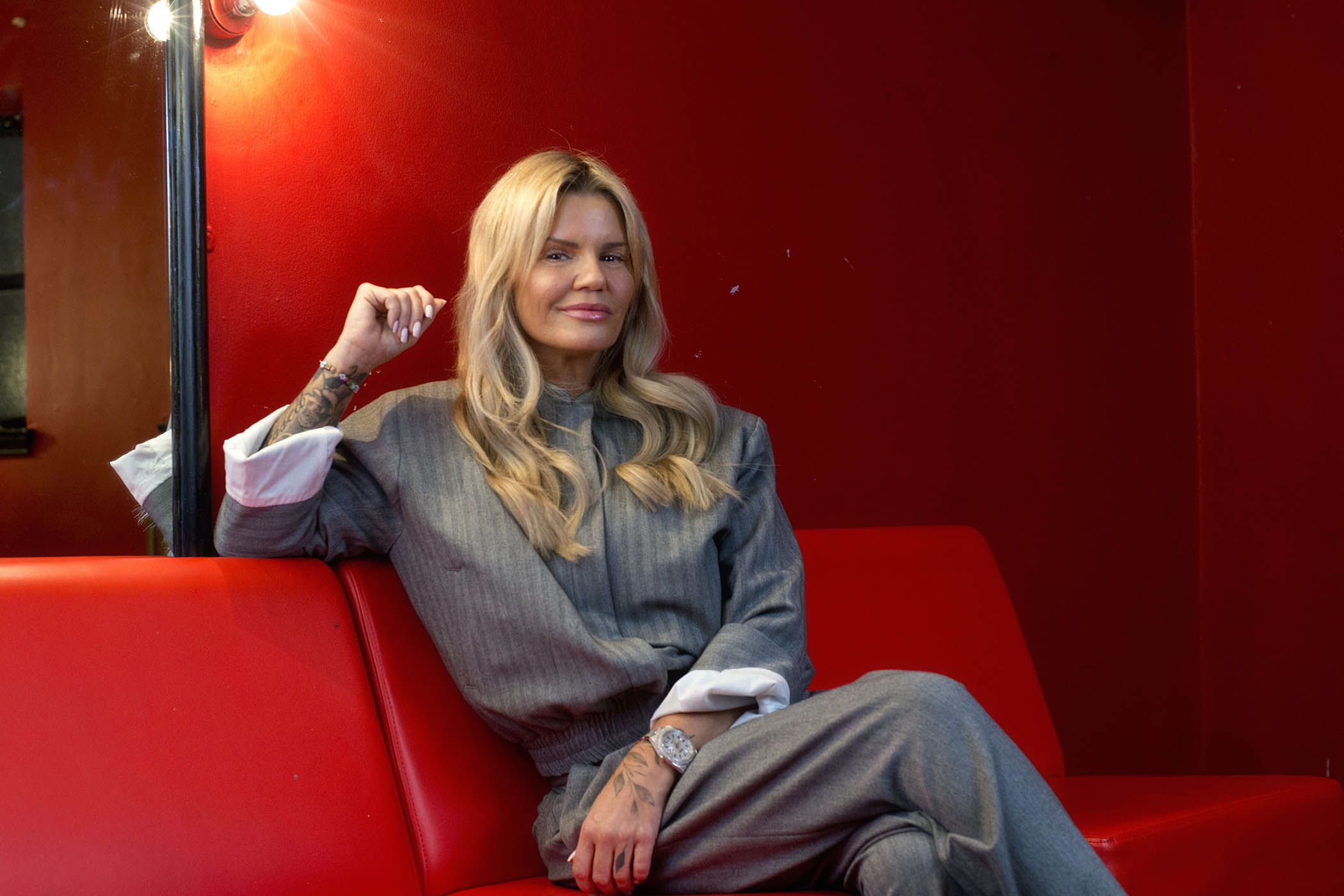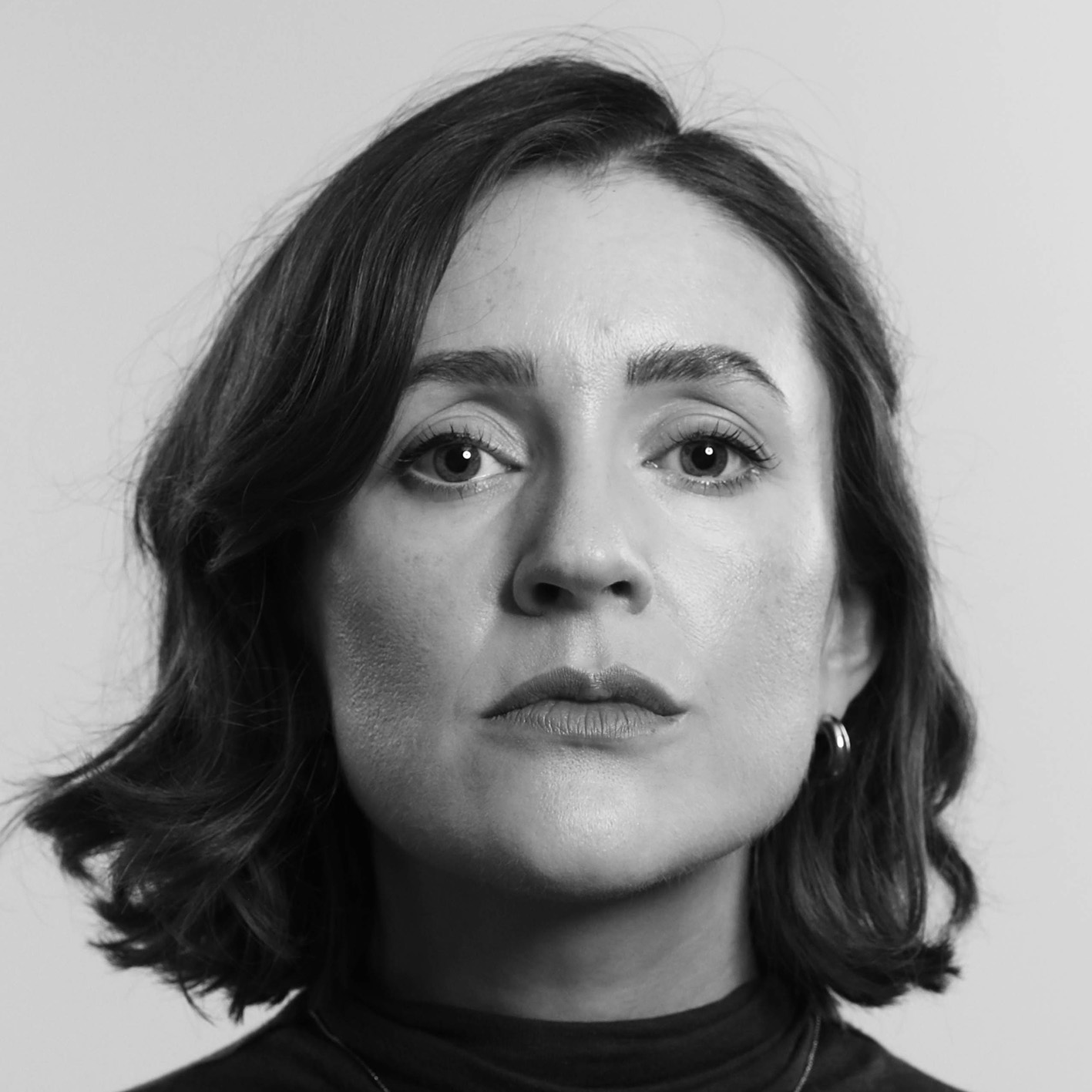Portrait by Sophia Evans for The Observer
Kerry Katona, 45, was a founding member of pop band Atomic Kitten. She had a succession of Top 10 hits before leaving the group in 2001 when she became pregnant with her first child. She later starred in reality TV shows, becoming the first female winner of I’m a Celebrity… and reuniting with band members Natasha Hamilton and Liz McClarnon on The Big Reunion. Katona grew up in Warrington and lived with multiple foster parents before leaving school at 16 to pursue glamour modelling. The mother-of-five faced tabloid attention as she weathered divorces, including from Westlife star Brian McFadden, addiction, bankruptcy and domestic violence. Following her latest bankruptcy, Katona started making content on OnlyFans, which she says has made her a millionaire. She’s currently touring with friend Katie Price and is soon to appear in the BBC documentary Girlbands Forever, a behind-the-scenes look at British girl groups in the 90s and 00s.
Girlbands Forever features footage of you as a teenager from Atomic Kitten’s early days. How did it feel watching that?
I couldn’t watch a lot of it. It made me quite sad. It was also nice to see how hard we worked, all the crappy clubs we did. This was an era where we grafted our arses off just to get our name out there. Tash and Liz were my baby sisters and we went through something so unique together that you don’t really appreciate at the time. There was such naivety: “Girl, you’ve no idea what’s ahead of you. You’ve no idea what’s about to happen.”
You were all really young when you joined the band – were you too young in hindsight?
Related articles:
I was 17 when I met Andy McCluskey [of OMD, who assembled Atomic Kitten]. I was living in a semi-independence house when I was 16; I got my first council flat when I was 17. I was very old-headed, but I had no parental guidance. I had never really belonged anywhere. Hugh Goldsmith [founder of Atomic Kitten’s label, Innocent Records] called me a loose cannon.
You’ve said that from a young age, you wanted to be famous. Was there one moment when you realised: “I’m famous now”?
We’d been working solidly for six months and got a weekend off, so I just went to my local nightclub like any teenager would. I remember walking in and going: shit! I got a lot of attention when I was younger because of the way I looked, but this was a completely different level that I did not like. I had two drinks then I left. I couldn’t go out without having a drink after that.
You say in the documentary: “Fame is a really fucked up thing.” What do you mean by that?
It is. I always just wanted to entertain, to make people happy, inspire people. With fame, people start to think you’re mega rich. They said we got a £1.5m record deal – well, I walked away with 36 grand in my bank. I didn’t get any of that kind of money! It’s a really lonely world.
I started dating Brian [McFadden], then there were so many skeletons in my closet: doing the glamour modelling, being in foster homes, my mum’s sexuality. I did not enjoy that kind of attention. When I became pregnant with Molly I just wanted to get away from it all. I got a No 1 – I’m eternally grateful for that – but I didn’t know how to handle it. I was suicidal. I turned to drugs.
Are you more comfortable with fame now?
Put me on a stage and I’ll be the most confident person in the world. Put me in a crowded room somewhere – I shit myself. I don’t want to go! When I’m having to go to events, I panic.
It’s clear from the documentary that those in charge back then were mostly older men. What was the music industry like? Did girl bands face sexism?
Women were hugely abused, as in, you were allowed to say anything to them, you were allowed to get away with a lot of things. If you look back at that era – the cameras up the skirts, the way the News of the World was with regards to me, Katie [Price], Ulrika Jonsson – it was almost a given to destroy women. In girl bands, there’s always one that they tear down, just for a headline. Those headlines made me suicidal. It was always a man in charge – a male editor, a male photographer. They liked using us women for the headlines. No one gave a shit about your mental health.
You’re about to wrap up your tour with Katie Price, where you talk in front of live audiences, sharing your experiences of fame and tabloids. Tell me about your friendship.
This tour is about how it feels when people do not want anything to do with you, and how easy it is to give up. We talk about domestic violence – everything. We tell the truth about gossip. But we have a sing-song, we have a laugh. It’s all about lifting each other up. So many people didn’t want me to work with Katie. I wouldn’t have worked with Katie if she hadn’t turned things around. But I’ve been where Katie’s been. When your friend’s that low, should you not be there for them?
How did your time in Atomic Kitten shape who you are today?
Atomic Kitten gave me the tools to deal with what I went through later on. But it never really prepared me. Nothing can. It gave me something to be proud of. It also saddens me that the girls don’t talk to me any more, because we were like sisters.
Do you still listen to Atomic Kitten songs?
I had my [daughters] Molly and Heidi with me [on tour], and Heidi does the playlist in the car. Day before yesterday, we were pulling up to the theatre and blasting I Want Your Love and Right Now. That’s when pop stars were proper pop stars. I love listening to our songs. I love listening to the songs I wasn’t even on!
Girlbands Forever begins on BBC Two on Saturday 1 November, with all episodes available on iPlayer. An Evening With Katie Price and Kerry Katona is on tour until Sunday 2 November



